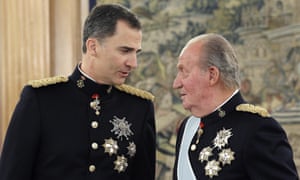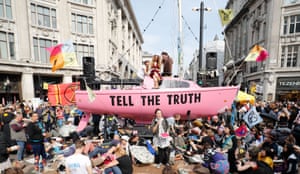
[ad_1]
Top story: Exodus akin to ‘economic or political crisis’
Good morning, Warren Murray bringing you the headlines this Tuesday morning.
The number of British nationals emigrating to other EU countries has risen by 30% since the Brexit referendum, to a level akin to a country experiencing “economic or political crisis”, experts have found. Analysis of data from the OECD and Eurostat shows the number leaving was 73,642 a year in 2016-18, with a 500% increase in those who then took up citizenship in an EU state. In Germany’s case 31,600 Britons have naturalised since the referendum – a 2,000% rise. The biggest jump in migration has been to Spain, followed by France.
The withdrawal agreement signed in January enshrines residency, work and social rights of EU citizens in the UK and Britons in the bloc, but failed to guarantee the free movement rights of British migrants – restricting future employment and residency prospects in other member states. Unless British nationals take out citizenship in their host country, they can no longer work in or offer a service to another EU member state, impacting professions including accounting, law, architecture, translation and health.
Carlos gone – Spain’s former king, Juan Carlos, has exiled himself to an as-yet-unnamed country after allegations about his finances damaged the monarchy and embarrassed his son, King Felipe.

Juan Carlos played a pivotal role in restoring democracy to Spain after the death of General Francisco Franco in 1975. He abdicated six years ago after a series of scandals including taking an elephant-hunting trip to Botswana while Spain was in the grip of financial crisis. Juan Carlos said in a letter to Felipe that he was leaving to help his son “exercise his responsibilities” as king.
Coronavirus latest – The government has one month to significantly boost its test-and-trace systems or risk a “second wave” of coronavirus after schools in England reopen, researchers have warned. Dozens of leading virus experts have complained that UK testing contracts have gone on ideological grounds to private sector companies rather than being based on expertise. The government has announced new 90-minute tests – but the experts from the UK Clinical Virology Network say such tests were already available, whereas the types chosen by the government are not well known.
Advertising spending across the UK media fell by more than £1bn year on year during the coronavirus lockdown, according to figures that reveal the government as the biggest advertiser during the pandemic. Activists are calling on the pharmaceutical firm Gilead Sciences to develop a drug called GS-441524 that showed promise in curing cats of a coronavirus. Donald Trump has again lashed out at his own health experts while repeating his opposition to lockdowns. Keep up on coronavirus developments at our live blog – in our latest global wrap, the UN has warned of a “generational catastrophe” as more than a billion children miss out on school, while Latin America has surpassed five million Covid-19 cases to account for nearly 30% of global infections
Health experts’ painkiller warning – Painkillers such as paracetamol, ibuprofen, aspirin and opioids can do “more harm than good” and should not be prescribed for chronic pain, the National Institute for Health and Care Excellence (Nice) says. It cites “little or no evidence” that the commonly used drugs make any difference to quality of life, pain or psychological distress in people with long-term pain. Draft guidance, which is open to public consultation until 14 August, says people should instead be offered supervised group exercise programmes, psychological therapy or acupuncture. Antidepressants might also be considered for some people with chronic primary pain, Nice says.
Striker pose – Marcus Rashford’s policy-changing campaign against child poverty has helped propel the footballer on to the front cover of British Vogue’s September issue.

The Manchester United striker, who forced a government U-turn on the granting of free food vouchers for the poorest families over the summer, headlines a special edition dedicated to activism – posing alongside Adwoa Aboah, the supermodel turned mental health activist, for the Activism Now issue.
Today in Focus podcast: How Covid sidelined cancer
With NHS services consumed by the fight against Covid-19 in recent months, cancer care has been dealt a blow, with diagnoses and treatment delayed.
How Covid sidelined cancer
Lunchtime read: Internal rebellion
In its first year of existence, Extinction Rebellion transformed the global conversation around the climate crisis. But then it was gripped by internal conflicts about its next steps. Can XR reinvent itself for the post-pandemic world?

Sport
English hockey has an “endemic race issue” from the national team down to the club game and junior levels, and is not doing enough to attract players from more deprived areas, the sport’s governing body has been told in a hard-hitting letter signed by nine clubs. Pakistan’s head coach, Misbah-ul-Haq, believes the 17-year-old Naseem Shah is a “complete bowler” and is pleased with his team’s preparations for the Test series, which starts at Old Trafford on Wednesday. England defender Danny Rose has said he is regularly stopped by police in his car and questioned in various scenarios that would not happen if he were a white man as he detailed his anger and exasperation at racism in the UK. Manchester United are in advanced negotiations with Borussia Dortmund to sign Jadon Sancho for an initial €100m (£90m) – a fee that would set a transfer record for an English player. Odell Beckham Jr, one of the NFL’s biggest stars, says the season should not go ahead as the Covid-19 pandemic continues its spread across the United States. And Sky Brown, Great Britain’s 12-year-old world skateboarding bronze medallist, is recuperating after a horrific accident but has told the Guardian she is already thinking of next year’s Olympic Games.
Business
Asian shares have risen after strong US manufacturing data and gains in tech stocks helped investors look past broader worries about the coronavirus and global economy. Oil futures gave up overnight gains to fall in Asia due to nagging worries about an increase in the supply of crude. US stock futures were 0.02% higher in Asia. The pound is worth $1.307 and €1.111 while the FTSE is pitched to open 12 points lower.
The papers
Several of today’s front pages memorialise John Hume and his role in Northern Ireland peacemaking. The Guardian remembers Hume as “A titan and a visionary”. Our print edition’s top story is the theft by Russians of secret UK-US trade documents from Liam Fox’s private email account. The Telegraph leads with that one too.

Differing treatments of “Eat out to help out”. The Metro has “Rishi two-snacks” noting that instead of just snagging a 50% discount, some people went two-for-one, which the paper warns “will fuel the obesity crisis”. The Mail confects “We’ve had our lunch, now let’s get back to work” – the paper finds a striking contrast in restaurants being “packed” while offices are “largely deserted”.
“Test & trace fiasco is timebomb” – the Mirror really ought to have chosen one derogative or the other. “Having virus may earn right to roam” – the i is reviving the immunity passport idea (maybe we’ll call it the “travel bug”). The Express says “Painkillers do more harm than good” and the Times has “Don’t give paracetamol to patients, doctors told” – that’s about treatment of chronic pain, and the warning also covers ibuprofen, aspirin and opioids. The Times’s picture slot goes to Spain’s runaway king-emeritus. The FT has “HSBC profits plummet 96% amid pandemic crisis and US-China spat” – here’s Larry Elliott on that one.
Sign up
The Guardian Morning Briefing is delivered to thousands of inboxes bright and early every weekday. If you are not already receiving it by email, you can sign up here.
For more news: www.theguardian.com
[ad_2]
Source link